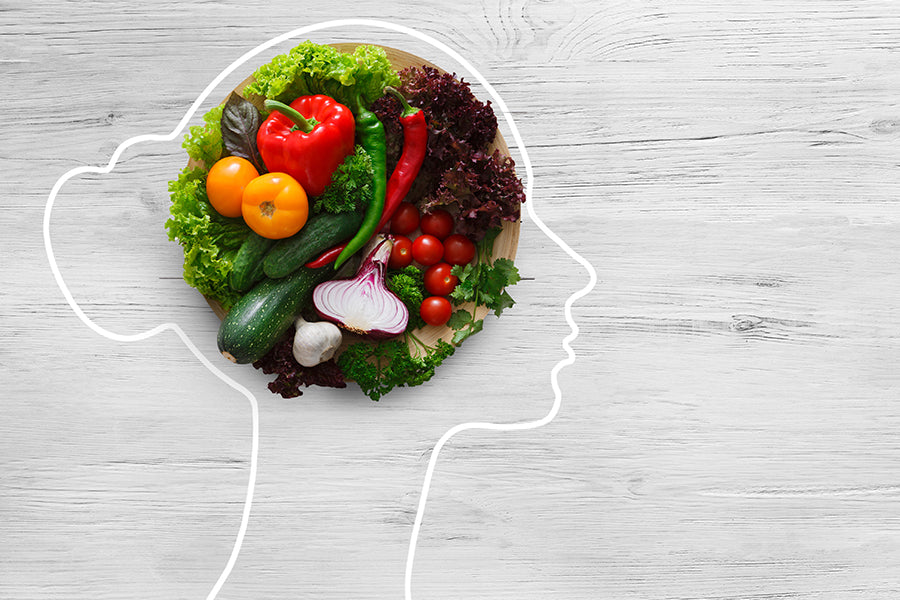When it comes to nutrition, it's easy to focus on what you should be doing. Eat your vegetables, drink plenty of water, and watch your sugar intake. But what about the things you shouldn't be doing? As a beginner, knowing what mistakes to avoid regarding your diet can be tricky.
In this article, we'll explore seven common nutrition rules many beginners may be breaking without realizing it. Just like with exercise, there are certain guidelines you should follow to see the best results. So, if you're looking to improve your diet and reach your health goals, read on to discover what not to do when it comes to nutrition.
7 Rules You Should Not Break
As you navigate your journey towards a healthier lifestyle, there are certain nutritional rules that you should prioritize to stay on track. Breaking these rules can harm your health and make it harder to reach your goals.
Here are 7 nutritional rules you should avoid breaking to ensure you stay on track towards a healthier you.
Rule 1: Not Eating Enough Protein

Protein is the MVP of nutrients and an essential part of any healthy diet. It's responsible for building and repairing tissues, making hormones and enzymes, and supporting a strong immune system.
However, for many beginners, insufficient protein is a common mistake that can negatively impact their health and fitness goals.
Think of protein as the building blocks for your muscles. Without enough protein, your muscles won't be able to repair and grow as effectively, which can hinder your progress toward your fitness goals. Plus, protein has the added benefit of keeping you full and satisfied, which can help you avoid snacking on unhealthy foods.
So, how much protein do you need? The general recommendation is around 0.8 grams per kilogram of body weight per day. But you may need more if you're physically active or looking to build muscle.
A good rule of thumb is to aim for 1.2-1.7 grams of protein per kilogram of body weight daily. Try incorporating protein-rich foods into your meals and snacks to ensure you get enough protein.
Lean meats, poultry, fish, eggs, dairy, beans, and legumes are all great protein sources. And, if you're in a rush or on the go, Whey Protein Powder can be a convenient way to increase your protein intake.
Remember, it's not just about how much protein you eat but also when you eat it. Spreading your protein intake throughout the day can help optimize muscle protein synthesis, which is the process that helps your muscles repair and grow.
Related Article: 10 Best Foods to Boost Your Daily Protein Intake in 2023
Rule 2: Not Eating Enough Fruits and Vegetables

We all know that fruits and vegetables are good for us, but are we eating enough? Unfortunately, many beginners may not consume the recommended amount of fruits and vegetables, which can negatively affect their health and well-being.
Eating fruits and vegetables is good for your health. They can help prevent serious illnesses like heart disease and diabetes and reduce the risk of some types of cancer. Plus, because they are full of fiber and other good stuff, they can help you feel full and not too hungry, which can help you keep a healthy weight.
The general recommendation for fruit and vegetable intake is around 5 servings daily. But many of us fall short of this goal. Try incorporating fruits and vegetables into every meal and snack to increase your intake. Add berries to your breakfast, snack on carrot sticks and hummus, and include a side salad with your lunch and dinner.
If you struggle to incorporate enough fruits and vegetables into your diet, try experimenting with different types and preparation methods. Roasting vegetables can bring out their natural sweetness, while adding herbs and spices can boost their flavor. And when it comes to fruits, try to choose whole fruits over fruit juices, which can be high in added sugars.
By not eating enough fruits and vegetables, you may be missing out on the key nutrients and health benefits they provide. But, by consciously incorporating more of them into your diet, you can support your overall health and well-being. So, challenge yourself to eat the rainbow and make fruits and vegetables a daily staple in your diet.
Rule 3: Eating Too Many Processed Foods
In today's world, it's easy to reach for packaged and processed foods as a quick and convenient meal option. However, many of these foods are high in calories, sugar, sodium, and unhealthy fats. Consuming too much of it can lead to weight gain, high blood pressure, and other health problems.
Processed foods are often designed to be highly palatable and addicting, making it easy to overeat them. They can also lack the essential nutrients our bodies need to function properly, such as fiber, vitamins, and minerals.
To combat this, try to limit your intake of processed foods and focus on whole, nutrient-dense foods. Whole foods are foods that are in their natural form and have not been altered or processed. These include fruits, vegetables, whole grains, lean proteins, and healthy fats.
When you go to the grocery store, try to buy more fresh foods like fruits, vegetables, meats, and dairy that are outside the store. If you need to buy packaged foods, look at the labels and choose ones with less sugar, salt, bad fats, fiber, and protein.
Meal prepping and cooking at home can also help you avoid processed foods. By preparing your meals, you can control the ingredients and know exactly what you eat. You can nourish your body and support your overall health and well-being by choosing whole, nutrient-dense foods.
Rule 4: Not Drinking Enough Water

Water is essential for your body, and not drinking enough can be problematic. When you're active, you need even more water to stay hydrated - around a gallon daily
But how do you figure out how much water you need? You can use a simple formula: multiply your body weight by .66. This will get you the ounces of water you should drink daily.
Some people avoid drinking too much water because they think they'll have to use the bathroom all the time. But here's a little trick: try to drink most of your water in the morning and then reduce your intake throughout the day. That way, you'll be well-hydrated by mid-afternoon and won't have to go to the bathroom as much at night.
If you struggle with drinking enough water, carry a water bottle, such as an Insulated Water Bottle, which ensures your water stays at a perfect temperature. You can also make it more interesting by adding a slice of lemon or lime, or try drinking herbal tea or other low-calorie drinks.
Remember that drinking enough water can help you feel full and satisfied, which can also be helpful in managing your weight.
Rule 5: Eating Too Much Sugar

While sugar can be a quick energy source, consuming too much of it can negatively affect your health. Eating too much of it can make you gain weight and increase the chances of getting sick with chronic diseases like heart disease and type 2 diabetes.
One of the biggest problems with sugar is that it's hidden in many processed foods, such as soda, candy, and baked goods. So, even if you're not adding sugar to your food or drinks, you may still consume more than you realize. To reduce sugar intake, read nutrition labels carefully and avoid foods high in added sugars.
It's also important to know the different names for sugar, such as high-fructose corn syrup, glucose, fructose, and sucrose. These can all be found on ingredient lists and contribute to your overall sugar intake.
Remember, a little bit of sugar in moderation is okay, but too much of it can negatively affect your health. So, keep an eye on your sugar intake and make changes to your diet if necessary.
Rule 6: Don't Overdo Your Cheat Day

When you're starting a weight loss journey, it's common to look forward to a "cheat day" or "free day" as a reward for all your hard work. This is a day where you can eat whatever you want, whether pizza, burgers, or ice cream, without worrying about calories or nutrition.
However, this can set you back in your progress and make it harder to achieve your goals. Eating a lot of excess calories that aren't going to serve you will not only affect you on that day, but it can also affect your digestion process and set you back even further.
It's essential to think of it as taking two steps backward. Instead of binging on unhealthy foods, try to limit yourself to one indulgent item that you're really craving, whether it's pizza, burger, or ice cream. Then, get back on track with your plan the next day.
On the other hand, you don't have to give up all your favorite foods completely. There are many ways to make unhealthy foods healthier, such as finding recipes for lower-calorie versions of your favorite meals.
Having a brief break from your regular eating plan can actually be beneficial for both your mental and physical health. Your body may respond to the increased calories by having more energy; mentally, it can help prevent feelings of deprivation and burnout.
So, don't make a full-on holiday out of your cheat day. Limit yourself to one indulgent item and get back on track with your plan the next day. And don't forget to find healthier alternatives to your favorite foods so you can still enjoy them without derailing your progress.
Rule 7: Skipping Meals or Snacks

Skipping meals or snacks may seem like a quick and easy way to reduce calorie intake, but it can actually be counterproductive for weight loss and overall health. When you skip meals or snacks, you may feel hungry and deprived, leading to overeating later in the day or choosing unhealthy foods out of desperation.
Skipping meals or snacks can have a negative effect on your metabolism, leading to fewer calories being burned by your body, which can make it difficult to lose or maintain weight.
Conversely, eating frequent meals and snacks can boost metabolism and stabilize blood sugar levels, leaving you feeling more satisfied and energized, reducing the chances of overeating or making unhealthy food choices.
If you find yourself too busy to eat regular meals or snacks, try planning ahead by packing healthy snacks and meals to take with you on the go. This can help you stay on track with your healthy eating habits, even on the run.
Remember, healthy eating is all about balance and consistency. Don't skip meals or snacks in an attempt to lose weight quickly, as this can actually backfire in the long run. Instead, focus on eating regular, nutritious meals and snacks that fuel your body and support your health goals.
Related Article: 15 Foods Athletes Should Never Eat
The Bottom Line
Congratulations, you've made it to the end of this article on 7 nutrition rules you may be breaking without realizing as a beginner. Remember, making healthy choices doesn't have to be complicated, and small changes can lead to big improvements in your overall health.
By avoiding these common mistakes, you'll be well on your way to reaching your nutrition goals and feeling your best. Don't forget to listen to your body, and if you're struggling, don't be afraid to ask for help from a registered dietitian or a certified nutrition coach. Here's to a healthier you!











